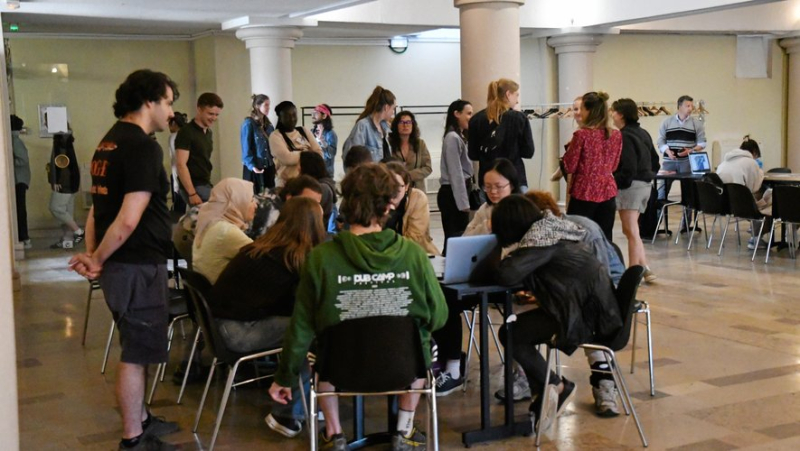Biodiversity, fishing… around sixty European students in the Thau basin to find solutions to the challenges

Les 64 étudiants se sont regroupés à Sète au théâtre de la Mer le premier jour de leur aventure. Midi Libre – KELMAN MARTI
Durant deux semaines, une soixantaine d’étudiants de cinq universités européennes sont sur le bassin de Thau pour trouver des solutions aux enjeux environnementaux de demain.
There are 64 students. Originally from Ireland, Spain, Hungary, the Netherlands, France or elsewhere, they are currently immersing themselves, from the 15th until the 26th. ;April, in the Thau basin.
Behind this improbable situation lies a project, called MoxMo (Montpellier cross-thematic mobility), bringing together five universities from the European alliance Charm-EU, including that of Montpellier. The objective is to send students from the master's "Global Challenges for Sustainable Development" into the field and allow them to find answers to concrete problems, a pedagogy at the heart of their training .
Local issues
Thus, the Joint Syndicate of the Thau Basin (SMBT), partner of this second edition, set them six challenges closely linked to the issues of the territory: fishing, sustainable tourism and the protection of biodiversity.< /p>
What are they ? "The establishment of shellfish farming tables equipped with solar collectors on the pond, the&rsquo ;installation on the pond of water quality analysis stations using AI, the creation of a walking path around the lagoon, the development of ;a project aimed at coordinating stakeholders in local food production, the appropriation of actions subsidized by local farmers and breeders, and a large-scale aquaponics sector project, < /em>list Alexandre Pennaneac’h, head of mission at SMBT and supervisor of a group of students.
Students in contact with local actors
During the two weeks, twelve groups of six students, from different countries, ages, cultures and specialties, will " survey the Thau and Montpellier basin, ask questions to professionals from various sectors (shellfish farming, viticulture, agriculture…hellip;) and finally try to resolve the challenges, indicates Valérie Borrell, teacher-researcher and head of Charm-EU at the University of Montpellier.
"We will try to create an engagement strategy to help professionals collaborate and share their know-how in a sustainable way", aims Clothilde Raysseguier with her group.
After ten days of intensive work, the students will submit their solutions, in the form of reports, scenarios, strategic notes, etc. "We'll let them sort themselves out. Their advantages are their outside perspective, their connectivity, their ability to put different actors in contact. At SMBT, we have ideas, but maybe they will have better ones. We hope that solutions can then be applied on a local scale, hopes Alexandre Pennaneac’h. Response Friday April 26 in Montpellier.




